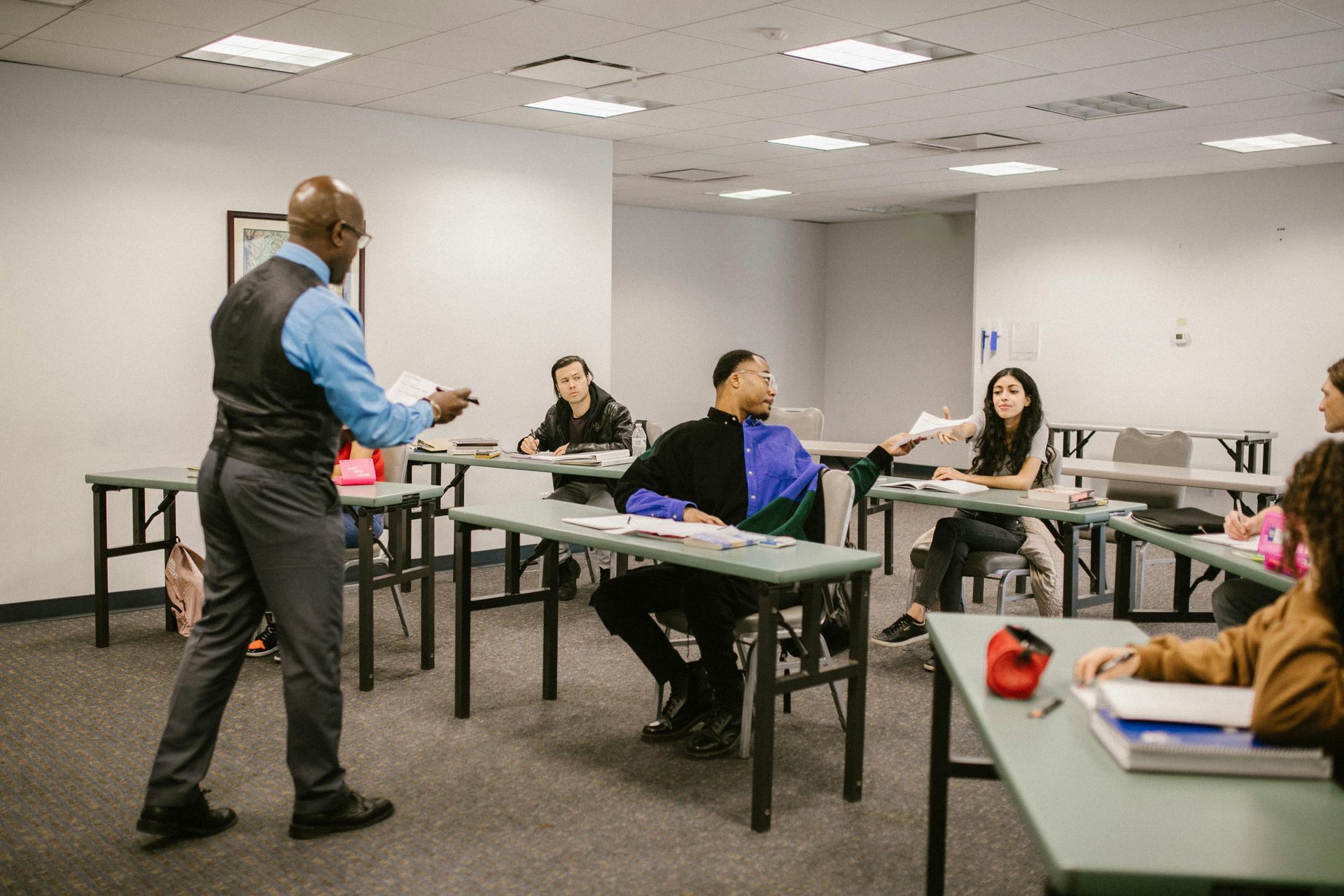By Gina DeCrescenzo
•
August 29, 2025
Across America, school and district leaders have a legal obligation to provide safe environments for students. They must supervise children responsibly, implement policies and rules that protect students from all forms of foreseeable harm, and maintain facilities and campuses to promote safety and security. When one or more academic leaders fail to uphold these responsibilities, children can experience problems with their educational, emotional and physical development. Their parents and guardians suffer as well. Although schools are meant to act as safe havens for children to acquire the knowledge and experiences they need to grow and thrive in the world as adults, far too often negligence or misconduct occurs in academic institutions. The consequences of bullying and harassment and inadequate supervision in Yonkers, New York, Long Island, New York, New York City, and other districts throughout NYS can be devastating to children and their families. What Is the Definition of Bullying and Harassment? Harmful actions against elementary and secondary school students can occur anywhere in a school environment. Bullies most often approach victims in transit on school buses or when groups of children walk to and from school, in neighborhoods and on playgrounds, during recesses and meal breaks, in bathrooms, hallways and classrooms, and on social media and in other internet social gathering places. According to the U.S. Department of Health and Human Services' (HHS) StopBullying.gov website, bullying occurs when one or more children intentionally create a power imbalance, or the perception of one, during their interactions with one or more other children through "unwanted, aggressive behavior," especially repeated aggressive words, physical actions and manipulation. Harassment creates an environment in which verbal, physical and other actions make the victim or victims feel unsafe and unwelcome. That said, as noted by the site's Get Help Now page, the legal definition specifically deals with one person targeting another based on their "race, color, national origin, sex, disability, or religion." In this example, a teacher or other staff member might also bully one or more children. How Do Bullies Attack Their Victims? Bullying and harassment are abusive actions that children and adults perform in direct and indirect ways. The intent is to cause both short-term and long-term harm to a victim. With verbal abuse, bullies often use belittling, humiliation, name-calling, ridicule, sarcasm, taunting, teasing, threats of harm and/or sexual commentary. Scenario examples of verbal bullying include: - Calling out the victim's perceived weaknesses loudly in public - Making mean comments about a victim's appearance or intelligence - Telling the victim that their only purpose in life is to provide sexual favors - Using close whispering to describe future harmful actions in detail During physical attacks, bullies often bite, hit, kick, pinch, poke, push or trip a victim. Sometimes they attack with food, water, or even their spit or waste. Physical bullying examples commonly include: - Breaking, hiding or stealing a victim's property - Making mean or rude side gestures in class - Exposing a victim to gross or sexual content anywhere - Touching a victim in a non-consensual intimate way In social incidents, bullies manipulate emotions to coerce a victim to perform an unwanted action, damage a victim's relationships or reputation, or isolate a victim entirely from others. Examples of social bullying include: - Blasting the victim with unwanted calls and messages - Exerting control over friend, class and shared groups - Manipulating others to perform the bullying actions - Spreading lies and rumors on social media Bullies attack anyone. That said, the most common victims are isolated or perceived as different or unable to fight back, such as children who experience anxiety or low self-esteem or struggle with invisible or visible chronic health problems and disabilities. What Are Common Warning Signs of Bullying? Many parents and guardians don't immediately notice the signs of a child experiencing bullying and harassment. They might believe their child is simply going through natural mental and physical changes or overreacting to events outside the home. If a teacher or administrator is the bully, they might be incapable of considering the possibility. Common signs that reveal a child bully victim range from bruises and other injuries to property loss or damage and self-destructive actions. For example, a bullied child might: - Allow their grades to slip and refuse to study - Experience nightmares or other sleep-related problems - Express less interest in hobbies - Fake being sick to stay home more often - Lose most of their friends or refuse to socialize - Stop eating as much or show signs of a serious eating disorder - Talk about feeling depressed or harming themselves and others Common signs that a child is abusing someone range from repeated talking back and overt aggression to covert and manipulative behaviors. For example, a child bully might: - Get into verbal or physical fights and frequently attend detention or visit the principal - Make friends with children and others who act aggressively or meanly toward people - Possess an unnatural belief that everyone hates them, talks about them, or wants to hurt them - Refuse to accept that they're a problem and blame anyone they can for their actions - Worry obsessively about their popularity and reputation or have an unhealthy sense of competitiveness Parents, guardians and others must keep in mind that children often won't report the bullying to them. Like adult victims of domestic violence, disability abuse, narcissistic actions and other forms of abuse, young victims experience high levels of fear and uncertainty that make them question who to trust. Worse, bullies often use mental tactics to make victims think that no one can help or that they will know if someone finds out. Some children also believe they must stop the bullying on their own to feel like they're in control of the situation and earn the respect of their peers or adults. How Should Schools Respond to Safety Issue Reports? On September 13, 2010, New York legislators created the Dignity for All Students Act to address bullying and harassment in elementary and secondary schools. The act requires school leaders to guarantee a "safe and supportive environment" for all students, no matter their background. It covers many school-related locations, including buses, campuses, and events hosted by or attached directly to a school. The Dignity Act amended state education laws with directions related to character, citizenship, civility, dignity, respect, sensitivity, tolerance and other areas. It covers "different races, weights, national origins, ethnic groups, religions, religious practices, mental or physical abilities, sexual orientations, gender identity, and sexes." Under DASA, school officials must use the guidance in their codes of conduct and provide a safe space that's free of bullying, discrimination, intimidation, taunting, and harassment. It also requires schools to address these areas fully, and officially report all incidents. At the federal level, HHS notes that victims, parents and guardians should report cases of bullying and harassment to a teacher, school counselor or principal. The state requires them to also report to a DASA coordinator. Once school officials receive a safety issue report, they aren't required to hire an outside investigator or transfer a bully to a different school. That said, they must stop the situation by any means possible. How Can a New York Lawyer for School Bullying Help? Parents and guardians don't typically know the swiftest ways to help their bullied child or children. The steps required are lengthy and consume a lot of time and effort. Additionally, many New York schools don't have the staff or resources to address all reports of bullying and harassment appropriately. Even if a parent or guardian recognizes and documents everything, they might have difficulty with receiving help from a DASA coordinator. They might not file their complaint correctly or in a timely fashion. They must also follow up regularly with the coordinator and the school. Some schools won't take action without repeated complaints or public feedback. And even then, they often find the incidents "unfounded" and rubber stamp whatever was done by their staff and adiminstrators. Although victims and their loved ones have the right to file a complaint with the police, law enforcement officers often refer back to school or district leadership. If the school fails to help, parents and guardians must then reach out to the school superintendent, New York's Department of Education, and the civil rights offices of the U.S. Department of Education and U.S. Department of Justice. A school bullying lawyer qualified to provide legal guidance and support in New York can help push all these processes forward faster. When an Education Attorney fights on behalf of a family, school officials are forced to recognize that they won't get away with dragging their heels. They can't just sit back and hope this problem will go away after a verbal warning or brief detention or over time with the maturation of the involved children. When Is the Right Time to Speak to an Education Lawyer? The sooner the better. If your child experienced and reported any form of bullying or harassment and failed to receive a strong initial response from New York teachers or other officials, it's time to contact a lawyer who deals specifically with these types of education and bullying claims. The education attorneys and team at Gina DeCrescenzo, P.C., have built a strong reputation for holding powerful academic institutions accountable. They do not shy away from litigation and have gone to federal court with bullying cases and WON. GDPC is proud that they've expanded their practice to represent bullied and other children in education as well as personal injury cases against schools and school districts. For more information or to schedule a consultation to discuss your child's case, call (914) 615-9177, send an email to info@decrescenzolaw.com























